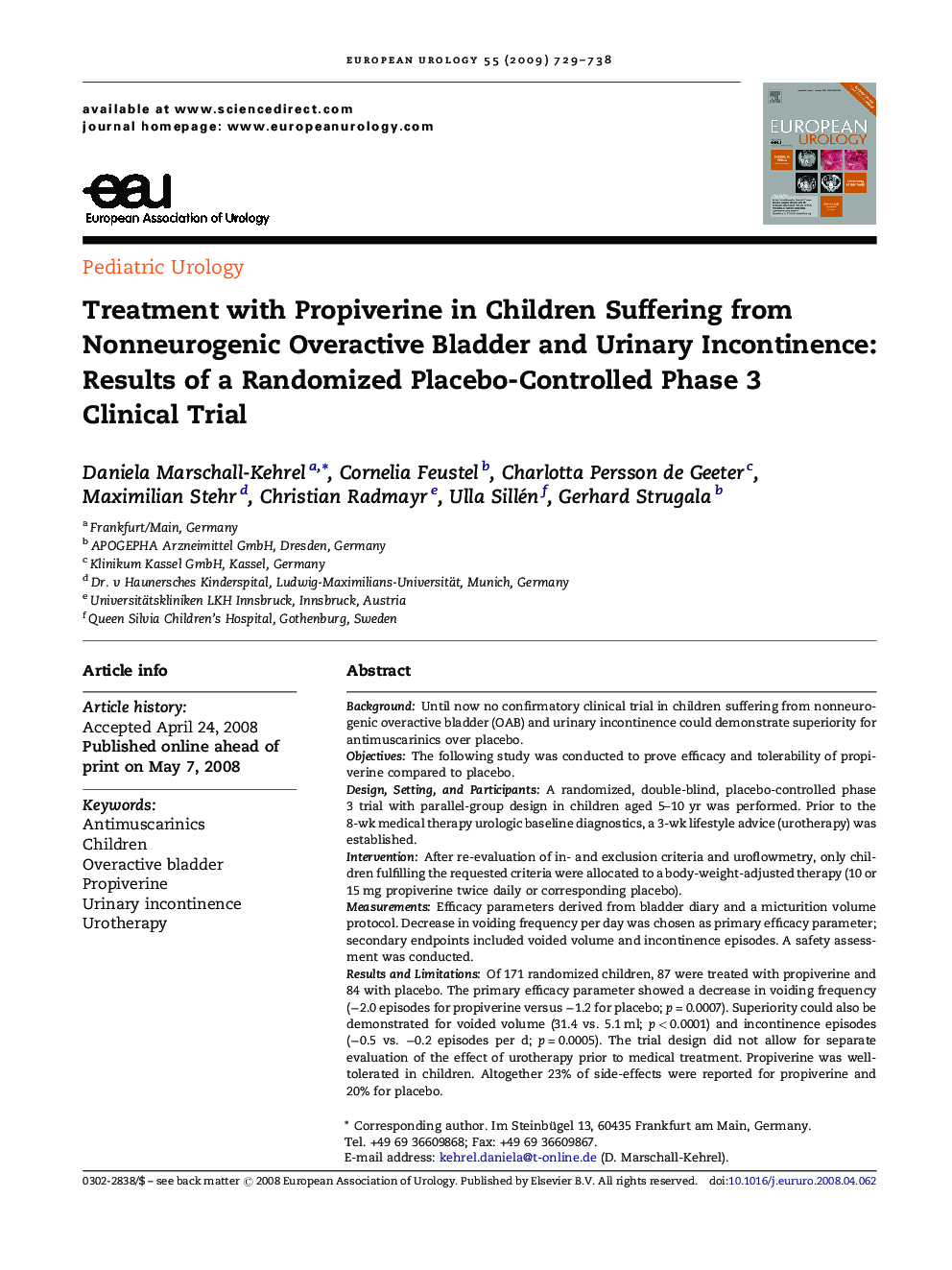| Article ID | Journal | Published Year | Pages | File Type |
|---|---|---|---|---|
| 3924926 | European Urology | 2009 | 10 Pages |
BackgroundUntil now no confirmatory clinical trial in children suffering from nonneurogenic overactive bladder (OAB) and urinary incontinence could demonstrate superiority for antimuscarinics over placebo.ObjectivesThe following study was conducted to prove efficacy and tolerability of propiverine compared to placebo.Design, Setting, and ParticipantsA randomized, double-blind, placebo-controlled phase 3 trial with parallel-group design in children aged 5–10 yr was performed. Prior to the 8-wk medical therapy urologic baseline diagnostics, a 3-wk lifestyle advice (urotherapy) was established.InterventionAfter re-evaluation of in- and exclusion criteria and uroflowmetry, only children fulfilling the requested criteria were allocated to a body-weight-adjusted therapy (10 or 15 mg propiverine twice daily or corresponding placebo).MeasurementsEfficacy parameters derived from bladder diary and a micturition volume protocol. Decrease in voiding frequency per day was chosen as primary efficacy parameter; secondary endpoints included voided volume and incontinence episodes. A safety assessment was conducted.Results and LimitationsOf 171 randomized children, 87 were treated with propiverine and 84 with placebo. The primary efficacy parameter showed a decrease in voiding frequency (−2.0 episodes for propiverine versus −1.2 for placebo; p = 0.0007). Superiority could also be demonstrated for voided volume (31.4 vs. 5.1 ml; p < 0.0001) and incontinence episodes (−0.5 vs. −0.2 episodes per d; p = 0.0005). The trial design did not allow for separate evaluation of the effect of urotherapy prior to medical treatment. Propiverine was well-tolerated in children. Altogether 23% of side-effects were reported for propiverine and 20% for placebo.ConclusionsThis clinical trial showed superior efficacy of propiverine over placebo and good tolerability for the treatment of children suffering from OAB and urinary incontinence. An important additional factor for the success of the trial was a modified trial design with previous urotherapy.Trial RegistrationClinicalTrials.gov Identifier: NCT00603343.
